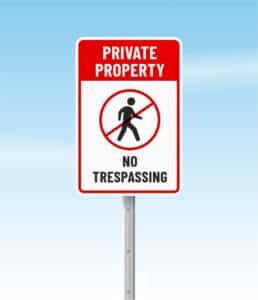Squatter’s Rights: Adverse Possession in Arizona
A squatter is an individual who occupies a property without legal ownership or the owner’s permission. While they lack property rights, squatters are afforded certain legal protections that property owners must acknowledge.
Squatters in Arizona, like those in other U.S. states, do have legal rights that allow them to potentially acquire ownership of a property under certain conditions. Property owners in Arizona should understand these rights to prevent squatters from gaining legal possession of their property.
Learn more about Squatting in the US by clicking on the link.
Adverse Possession Laws in Arizona
Adverse possession is a legal way that lets squatters say, “Hey, I own this property now,” even if someone else legally owns it. If you’ve been living on a property, taking care of it, and using it like the owner would for a certain time, you can claim it as your own.
Requirements for Squatters in Arizona
How Long You Have to Live There: The time you need to live on a  property depends on a few things:
property depends on a few things:
- If you’ve got something called “color of title,” it’s 3 years for rural spots and 5 years for city properties.
- If you don’t have a title or “color of title,” it’s 2 years. But if you’ve been paying property taxes, it’s 5 years.
- If you’ve both paid taxes and worked on the land, it’s also 5 years.
- If you’ve just been working on the land, it’s 10 years.
Land Size Limit: In Arizona, you can’t claim more than 160 acres of land through adverse possession.
Being a Good Neighbor: You don’t have to know you’re trespassing in Arizona. The law says your stay is “hostile” if you don’t get permission from the owner.
Being There and Taking Care of Business: You’ve got to be on the property and take care of it like an owner would. Fixing things up or paying property taxes can change how long you need to stay.
No Hide-and-Seek: Don’t try to hide that you’re living there. It should be clear to everyone that you’re on the property.
Exclusive possession: You can’t share the place with others. It’s got to be just you if you want to make a claim.
Squatting vs. Trespassing vs. Holdover Tenants
What Makes Squatting Different from Trespassing?
So, what’s the big difference between squatting and trespassing? Well, it boils down to whether the property is currently being used and if the owner has said it’s okay for people to stay there without formal papers.
- If someone’s in your home while you’re still there, that’s trespassing. Trespassing also counts if you’ve made it super clear that squatters aren’t welcome. So, if you’ve put up “No Trespassing” signs or told them directly to stay out, they could face legal trouble for
squatting. - But if the property is empty, and the person living there has no clue they’re not welcome, it’s not trespassing.
What About Holdover Tenants?
Now, what if a tenant stays past their lease agreement? That could also be trespassing, unless the owner gives them the green lig
ht and they keep paying rent. In that case, they become what’s called “tenants at will,” and it’s up to the owner to decide what to do next.
Bottom Line: Squatting becomes illegal once you’ve made it clear that squatters aren’t welcome, whether by using signs or talking to them directly.
How to Kick Squatters Out of Your Arizona Property
Property owners in Arizona can deal with adverse possession claims legally. They can file a quiet title lawsuit, use the guest removal law, or start the eviction process. The eviction process offers different kinds of notices, like a 5-day Notice to Pay or a 30-day Notice to Quit, depending on the situation.
Knowing these rights and legal steps can help property owners protect their places from squatters and adverse possession claims in Arizona.
How to Protect Your Property from Squatters

Despite Arizona’s Protections: While Arizona has some rules to protect people who squat in empty homes, hosting squatters on your property can lead to legal issues. Here’s a guide to help you avoid problems and keep squatters away.
- Regular Check-Ins: If you often leave your property empty for a while, it might attract squatters.
- Beef Up Security: Put strong locks on all doors and windows. If you’re not living there full-time, think about getting a reliable security system. These steps can make it less tempting for unwanted guests.
- “No Trespassing” Signs: Here’s a tricky one. To keep squatting legal, you can’t tell people they can’t enter your property. If you post signs saying “No Trespassing,” squatters go from being legal to being in trouble for trespassing.
- Pay Property Taxes on Time: Property taxes are important if you want to claim adverse possession. Paying them on time can help stop others from challenging your ownership.
Dealing with Squatters Already There
If squatters have already moved in, you’ve still got some options:
- Written Eviction Notice: Start by giving them a written notice telling them to leave. If they don’t go, their stay becomes illegal.
- Offer a Rental Deal: You could suggest renting the place to them. This might lead to a peaceful solution.
- Call the Cops: If squatters refuse to leave or get confrontational, you might need to call the police.
A Word of Warning: Turning off utilities or making threats to squatters can get you into legal trouble. Make sure you go through the right legal steps to protect both yourself and your property.
Frequently Asked Questions
How Long Can Squatters Stay in Arizona?
In Arizona, squatters can technically stay on an empty property until someone directly tells them to leave. After living there for a solid 2 years and meeting criteria like paying taxes and taking care of the property, they might have a chance to claim it as their own.
Do Squatters Have to Pay Taxes?
Yup, squatters in Arizona must pay property taxes for at least 2 years before they can try to claim the property as theirs through adverse possession.
Is Squatting in a Home Illegal?
Yep, squatting in a home where legal residents live is illegal. But if the place is empty, and there’s no clear sign saying they’re not welcome, squatters are protected by Arizona’s squatter laws.




